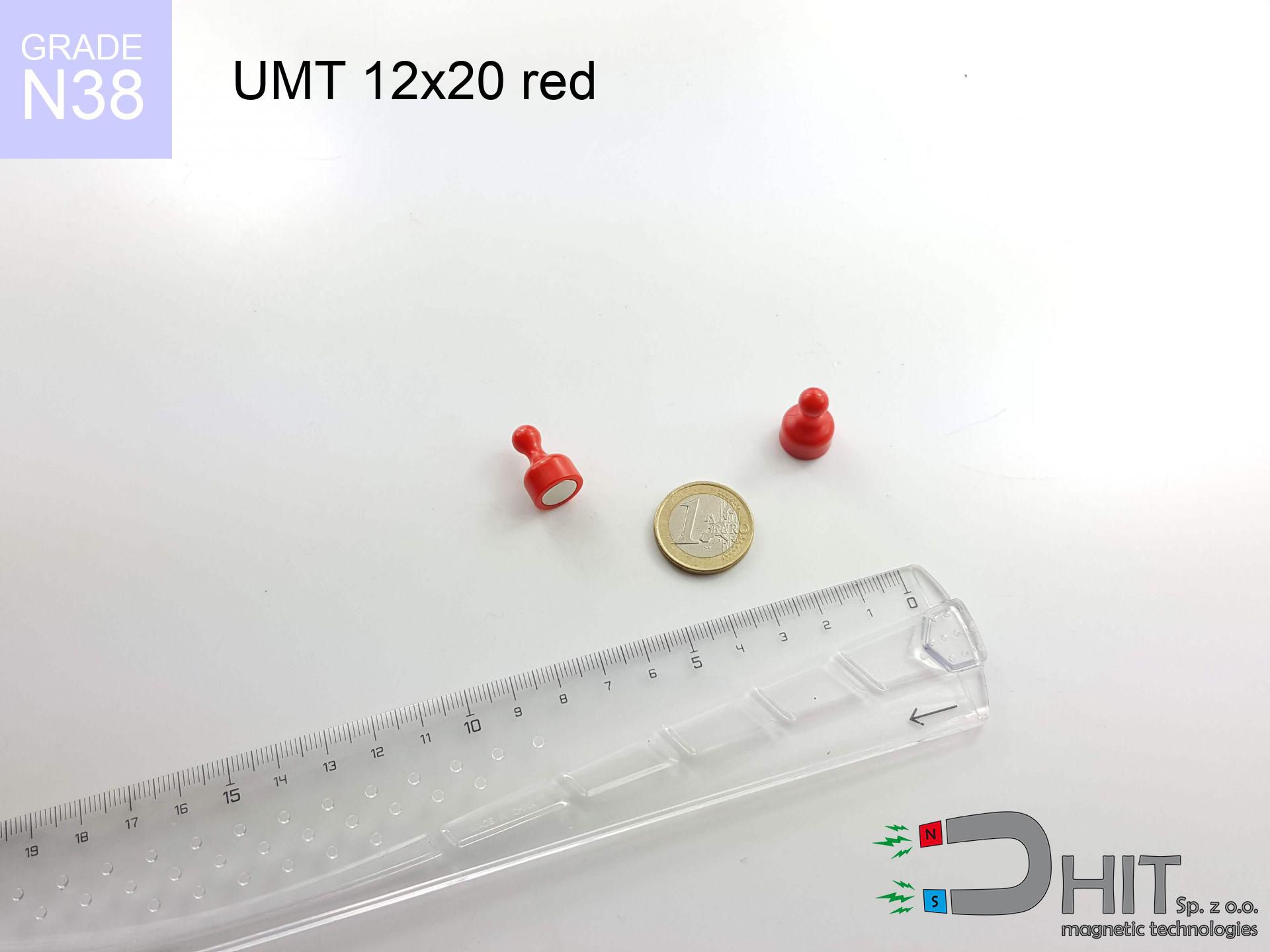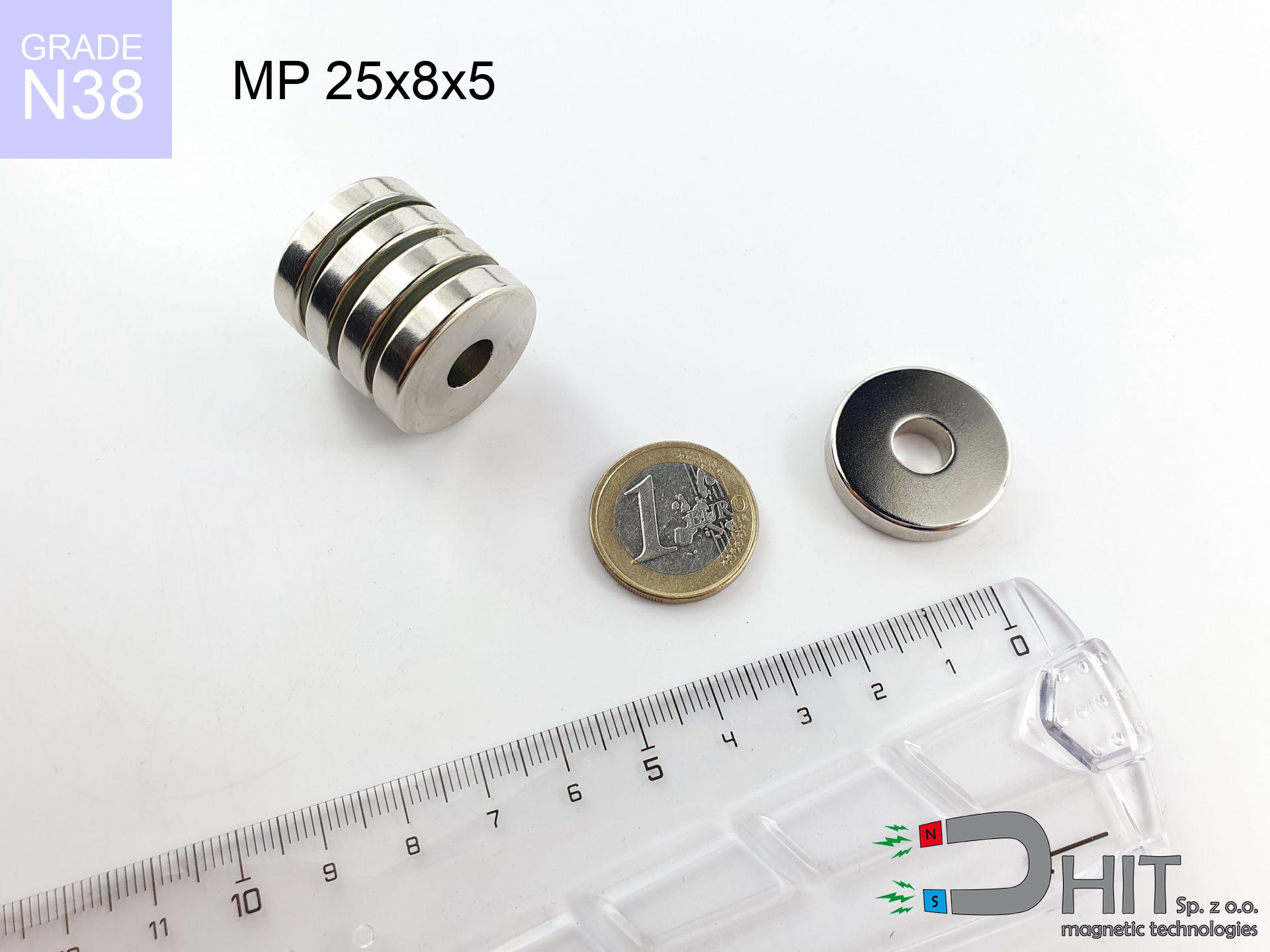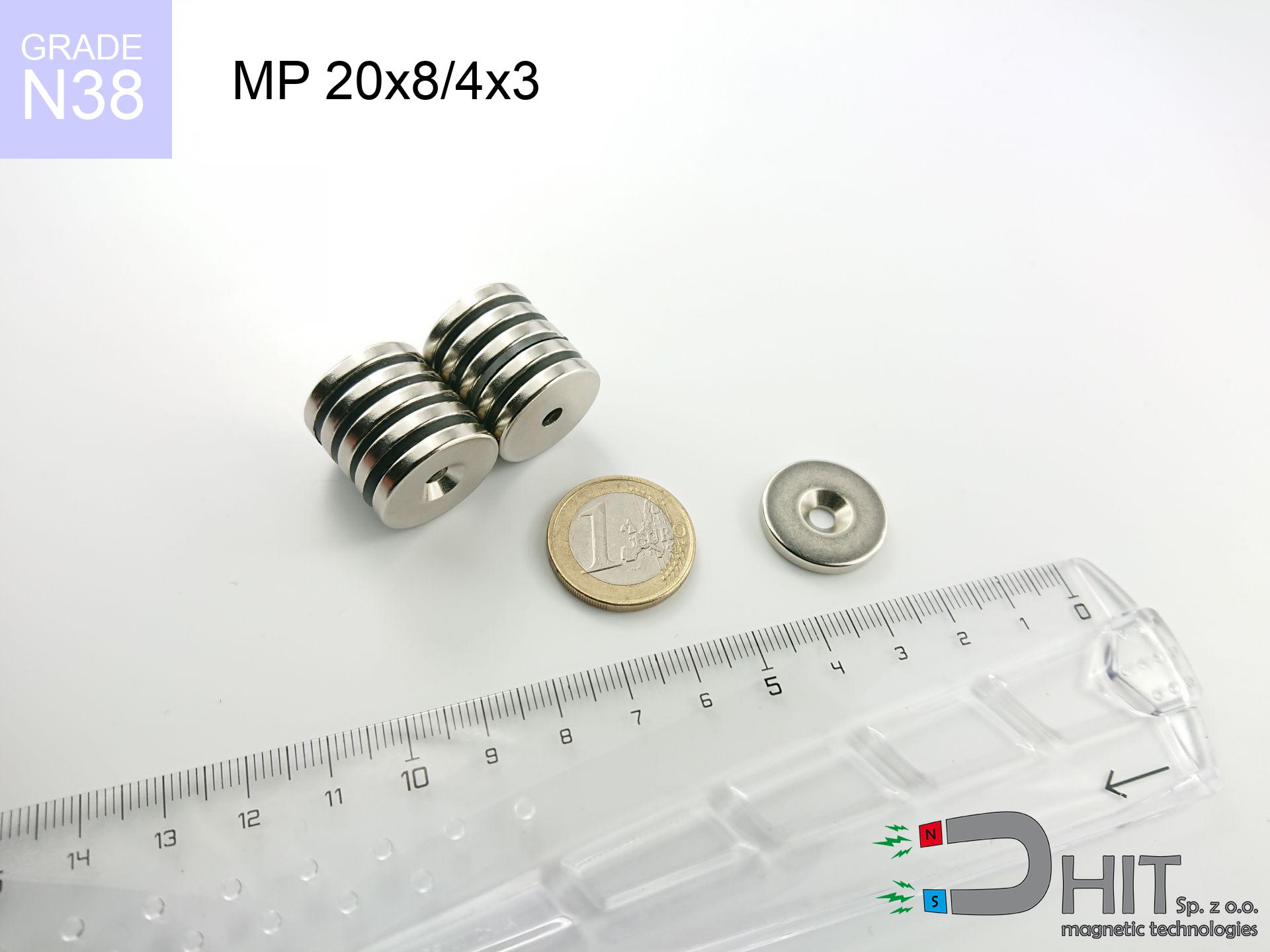AM szekla [M10] - magnetic accessories
magnetic accessories
Catalog no 080267
GTIN/EAN: 5906301812463
Weight
118 g
Load capacity
320.00 kg / 3138.13 N
4.92 ZŁ with VAT / pcs + price for transport
4.00 ZŁ net + 23% VAT / pcs
bulk discounts:
Need more?
Call us
+48 888 99 98 98
alternatively drop us a message using
contact form
our website.
Parameters as well as form of neodymium magnets can be verified using our
online calculation tool.
Same-day shipping for orders placed before 14:00.
Detailed specification - AM szekla [M10] - magnetic accessories
Specification / characteristics - AM szekla [M10] - magnetic accessories
| properties | values |
|---|---|
| Cat. no. | 080267 |
| GTIN/EAN | 5906301812463 |
| Production/Distribution | Dhit sp. z o.o. |
| Country of origin | Poland / China / Germany |
| Customs code | 85059029 |
| Weight | 118 g |
| Load capacity ~ ? | 320.00 kg / 3138.13 N |
| Manufacturing Tolerance | ±1 mm |
Physical properties of sintered neodymium magnets Nd2Fe14B at 20°C
| properties | values | units |
|---|---|---|
| Vickers hardness | ≥550 | Hv |
| Density | ≥7.4 | g/cm3 |
| Curie Temperature TC | 312 - 380 | °C |
| Curie Temperature TF | 593 - 716 | °F |
| Specific resistance | 150 | μΩ⋅cm |
| Bending strength | 250 | MPa |
| Compressive strength | 1000~1100 | MPa |
| Thermal expansion parallel (∥) to orientation (M) | (3-4) x 10-6 | °C-1 |
| Thermal expansion perpendicular (⊥) to orientation (M) | -(1-3) x 10-6 | °C-1 |
| Young's modulus | 1.7 x 104 | kg/mm² |
Chemical composition
| iron (Fe) | 64% – 68% |
| neodymium (Nd) | 29% – 32% |
| boron (B) | 1.1% – 1.2% |
| dysprosium (Dy) | 0.5% – 2.0% |
| coating (Ni-Cu-Ni) | < 0.05% |
Ecology and recycling (GPSR)
| recyclability (EoL) | 100% |
| recycled raw materials | ~10% (pre-cons) |
| carbon footprint | low / zredukowany |
| waste code (EWC) | 16 02 16 |
View more deals
Pros and cons of Nd2Fe14B magnets.
Strengths
- They virtually do not lose strength, because even after 10 years the performance loss is only ~1% (according to literature),
- They show high resistance to demagnetization induced by external disturbances,
- The use of an elegant coating of noble metals (nickel, gold, silver) causes the element to look better,
- They are known for high magnetic induction at the operating surface, making them more effective,
- Through (appropriate) combination of ingredients, they can achieve high thermal strength, allowing for action at temperatures approaching 230°C and above...
- Possibility of accurate machining as well as optimizing to defined applications,
- Versatile presence in electronics industry – they serve a role in mass storage devices, motor assemblies, medical devices, as well as industrial machines.
- Thanks to concentrated force, small magnets offer high operating force, occupying minimum space,
Disadvantages
- At very strong impacts they can break, therefore we recommend placing them in special holders. A metal housing provides additional protection against damage, as well as increases the magnet's durability.
- When exposed to high temperature, neodymium magnets suffer a drop in strength. Often, when the temperature exceeds 80°C, their power decreases (depending on the size, as well as shape of the magnet). For those who need magnets for extreme conditions, we offer [AH] versions withstanding up to 230°C
- When exposed to humidity, magnets usually rust. For applications outside, it is recommended to use protective magnets, such as those in rubber or plastics, which secure oxidation and corrosion.
- Limited possibility of producing threads in the magnet and complex forms - recommended is cover - magnetic holder.
- Possible danger to health – tiny shards of magnets are risky, if swallowed, which gains importance in the context of child safety. Additionally, tiny parts of these products can complicate diagnosis medical after entering the body.
- Higher cost of purchase is a significant factor to consider compared to ceramic magnets, especially in budget applications
Pull force analysis
Best holding force of the magnet in ideal parameters – what contributes to it?
- with the use of a sheet made of special test steel, guaranteeing full magnetic saturation
- possessing a thickness of min. 10 mm to avoid saturation
- with an ideally smooth touching surface
- under conditions of gap-free contact (surface-to-surface)
- for force applied at a right angle (pull-off, not shear)
- at conditions approx. 20°C
Key elements affecting lifting force
- Distance (between the magnet and the metal), as even a microscopic clearance (e.g. 0.5 mm) leads to a drastic drop in force by up to 50% (this also applies to varnish, rust or debris).
- Angle of force application – maximum parameter is available only during pulling at a 90° angle. The resistance to sliding of the magnet along the plate is standardly many times smaller (approx. 1/5 of the lifting capacity).
- Substrate thickness – for full efficiency, the steel must be sufficiently thick. Paper-thin metal limits the attraction force (the magnet "punches through" it).
- Material composition – not every steel reacts the same. High carbon content worsen the interaction with the magnet.
- Surface finish – ideal contact is obtained only on polished steel. Any scratches and bumps reduce the real contact area, weakening the magnet.
- Operating temperature – NdFeB sinters have a sensitivity to temperature. At higher temperatures they are weaker, and in frost they can be stronger (up to a certain limit).
Lifting capacity testing was carried out on plates with a smooth surface of suitable thickness, under perpendicular forces, whereas under attempts to slide the magnet the holding force is lower. In addition, even a slight gap between the magnet and the plate decreases the lifting capacity.
Safe handling of NdFeB magnets
Mechanical processing
Fire warning: Neodymium dust is highly flammable. Do not process magnets without safety gear as this risks ignition.
Do not overheat magnets
Regular neodymium magnets (N-type) lose power when the temperature goes above 80°C. The loss of strength is permanent.
Impact on smartphones
A strong magnetic field disrupts the operation of magnetometers in smartphones and navigation systems. Maintain magnets close to a device to avoid damaging the sensors.
Caution required
Exercise caution. Neodymium magnets act from a long distance and snap with massive power, often faster than you can react.
Product not for children
Strictly store magnets away from children. Risk of swallowing is significant, and the effects of magnets clamping inside the body are very dangerous.
ICD Warning
For implant holders: Strong magnetic fields disrupt medical devices. Keep at least 30 cm distance or ask another person to handle the magnets.
Avoid contact if allergic
Nickel alert: The nickel-copper-nickel coating contains nickel. If an allergic reaction occurs, cease handling magnets and wear gloves.
Beware of splinters
Protect your eyes. Magnets can fracture upon uncontrolled impact, ejecting shards into the air. Eye protection is mandatory.
Bodily injuries
Protect your hands. Two powerful magnets will snap together immediately with a force of massive weight, destroying anything in their path. Exercise extreme caution!
Safe distance
Do not bring magnets near a purse, computer, or screen. The magnetic field can permanently damage these devices and wipe information from cards.

![Equipment for magnets AM szekla [M10] Equipment for magnets AM szekla [M10]](https://cdn3.dhit.pl/graphics/banners/magnet.webp)
![AM szekla [M10] - magnetic accessories](https://cdn3.dhit.pl/graphics/products/am-szekla-m10-zeh.jpg)





